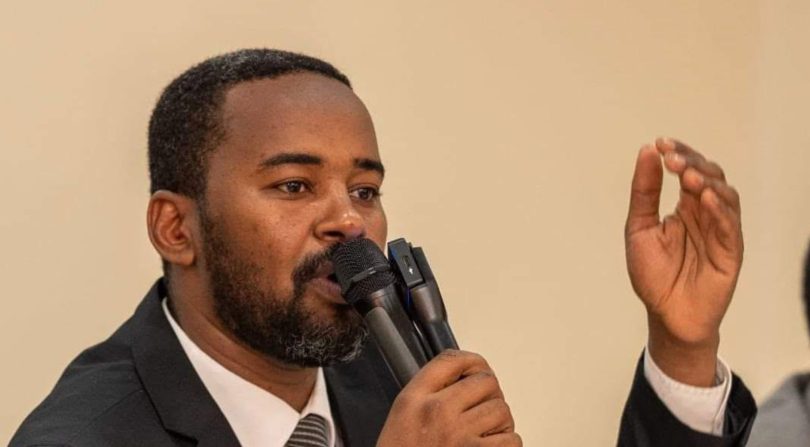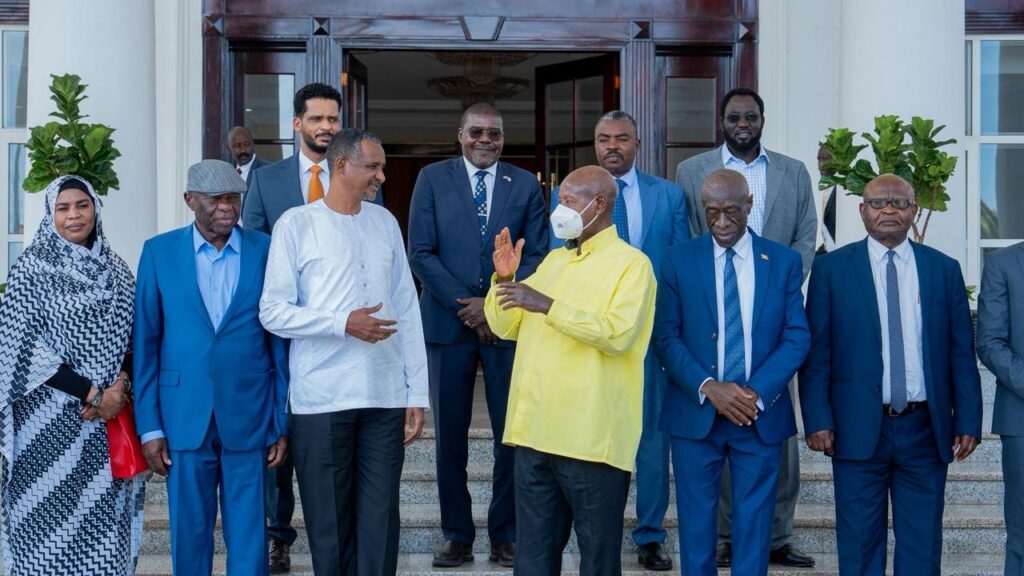
A senior figure in the Sudan Founding Alliance (TASIS) has pushed back against recent comments by Yasir Arman, head of the Sudan People’s Liberation Movement–Revolutionary Current (SPLM-RC), who argued that forming a “Founding Government” would harm the alliance and that a limited civil administration—echoing John Garang’s model—would be the wiser path.
Hasb al-Nabi Mahmoud Hasb al-Nabi, chairman of the Democratic Sudan Liberation Movement and a member of TASIS’s leadership body, said Arman’s position is “worthy of respect” but overlooks the scale of the crisis. He argued that Sudan’s peoples have faced systematic marginalization by state institutions and the stripping of basic rights, including full citizenship.
According to Hasb al-Nabi, the current conflict is not a passing dispute but a “regional” war in which General al-Burhan’s army (SAF) is aligned with hostile external actors seeking to preserve Islamist rule. He accused the SAF of waging a proxy fight “against Sudanese citizens,” saying its weapons are turned inward.
He contended that Sudan’s political and military order has collapsed under a war stoked by remnants of the former regime, whom he accused of being ready to return to power “even at the cost of mass atrocities,” citing decisions he attributed to Gen. Abdel Fattah al-Burhan. Limiting the response to a “narrow civil administration” after what he described as the “liberation” of most Darfur states, he said, would expose long-suffering communities to new massacres by forces “willing to annihilate half the population” to regain a lost “glory.”
Drawing a comparison with the earlier north–south war, he said southern citizens were not stripped of their nationality nor subjected to clerical edicts calling for their blood, questioning how the present climate—marked, he alleged, by intensifying extremist rhetoric—could be equated with that period.
Hasb al-Nabi further questioned trust in Burhan’s leadership, now based in Port Sudan, accusing it of issuing “racist, systematic” messages. Leaving matters as they are and assuming Burhan’s sole legitimacy, he warned, raises grave questions about the war’s trajectory, civilian casualties, and the likelihood of renewed mass mobilizations to topple him.
He claimed life in Khartoum has become “impossible,” alleging that figures from the former regime have purged “honest people” from the civil registry and are poised to carry out mass executions against revolutionary forces and the wider public.
Calling on “honorable” Sudanese to prioritize civilian protection, he said Nyala—framed as the administrative capital of a “new Sudan government” led by Gen. Mohamed Hamdan Dagalo (Hemedti)—and other “liberated areas” would remain safe havens until the entire country is “freed” from what he described as terrorists.
“Any talk outside this framework,” he argued, amounts to dangerous appeasement that could drag Sudan into even bloodier wars and erase hopes of a unified state based on equal citizenship and broad justice.
Arman had earlier warned that forming a TASIS government would backfire on the alliance more than on Sudan, saying the better course would have been to establish a civil administration akin to the approach associated with John Garang.




